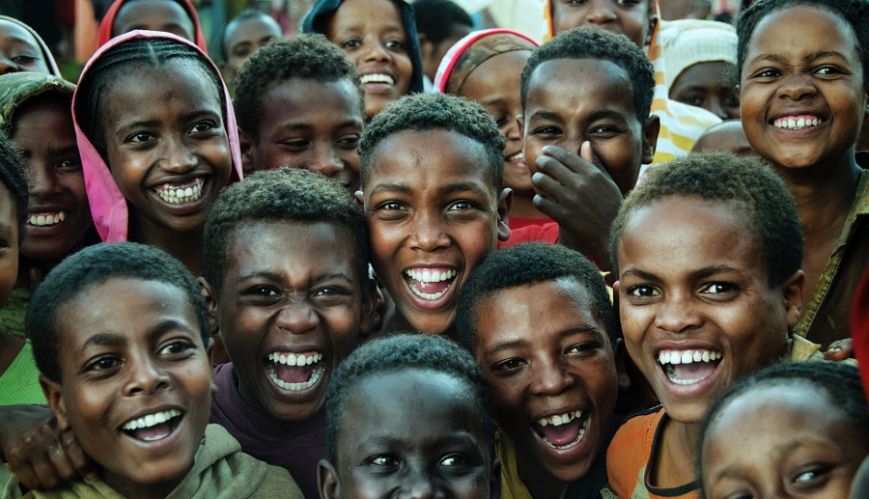Fear dictating our view of refugees

Fear dictating our view of refugees
6 March 2018
Photo: Trevor Cole
I heard the debate around South Sudanese young people, crime and gangs on the news and didn’t really tune in. Thinking it was old news and a fairly obvious political tactic, I didn’t pay much attention, until my brother-in-law contacted me with some questions about the “Sudanese gang problem”.
My brother-in-law isn’t a racist. He is well-travelled, thoughtful and very open to diverse cultures. But a lot of what he was talking about was essentially what the media had been espousing. Gone was his thoughtfulness and open-mindedness.
In its place was fear. It was when I realised that fear was winning the hearts and minds of otherwise rational people that I knew this was an issue that shouldn’t be ignored.
I have been working, living with and studying Sudanese youth for over eight years. In this time, I have never encountered anything like the gangs of youths that are being talked about. What I have seen is Sudanese young people be successful in academics and become lawyers and doctors; be hard workers and become tradies; be talented athletes and become professional sportspeople. I have seen some young people have trouble with the law and need advocacy with the police and in the courts.
To try and distil an entire culture, with various sub-cultures and traditional values – not to mention the various personalities of each individual – into a media sound bite about hordes of marauding African gangs, insults not only the Sudanese community, but every Australian. It insults our sense of a fair go, our diversity, and, on our good days, our intelligence.
African youth crime and Sudanese youth acculturation in general is a tricky area to venture into due to the complexities around the issue. Unlike some of my good friends who advocate for Sudanese young people, I don’t believe the issue should be merged with generalised young people and crime, or deny the reality that there is a correlation between Sudanese young people and their disproportionate participation in crime.
Not because I disagree with the assertion that these young people are indeed Australian youth and that it becomes distracting when we judge a person’s actions by the colour of their skin, or that the overwhelming amount of crime that is committed is not by people of African heritage. The reason I disagree with this approach is because if we insist on equality in this way, we are in fact denying justice to a highly marginalised group of young people.
Equality is about making everything equal, which is in itself a good thing. However, there are times when justice is needed, because not everyone has the same background, opportunities, or lived history. Therefore, fairness sometimes requires more being done or given to a certain a affected group before equality can be attained. In this case, these Sudanese young people need justice to allow equality, which can then in turn give them the best opportunity to be successful in their adopted culture.
Research is showing that the normal diagnostic tools for post-traumatic stress disorder, in general, aren’t effective on people who suffer extreme trauma, caused by extreme life events like war, starvation and forced migration. One young Sudanese man once told me of a time he was at school in a refugee camp when it was raided by militia. His best friend, standing next to him, was shot in the head. This young person had to keep living with the trauma of this experience. It doesn’t go away just because you are given a chance to live in a country like Australia.
One thing that I keep hearing throughout these reports is that there is a lack of assimilation into Australian culture. It seems many Australians feel like refugees should be saying thank you for letting them live here, not taking into account that it is pure chance that they themselves were born here, or that the trauma that many of these people experience is something they have to deal with every day. What is needed are resources to fund groups that work with cultures that have been forcibly displaced – groups that advocate for not only Sudanese youth, but all young people from refugee and asylum-seeker backgrounds – because it is these front-line organisations that have the expertise and experience to make a real impact on young lives.
Rather than putting more money into policing a problem that is being overblown, the money should be put into creating protective factors for these young people by helping them in their academic and employment pursuits, creating access to support for past traumas and the stressors of living caught between two worlds and cultures. What is most surprising to me is not that there is crime committed by Sudanese youth, but that there isn’t far more crime being committed, which speaks to the resilience and remarkable adaptability of the South Sudanese community.
Captain Troy Pittaway is Corps Officer at Berwick in Victoria. He is completing a PhD that explores the coping strategies of Sudanese young people. This article first appeared at eurekastreet.com.au